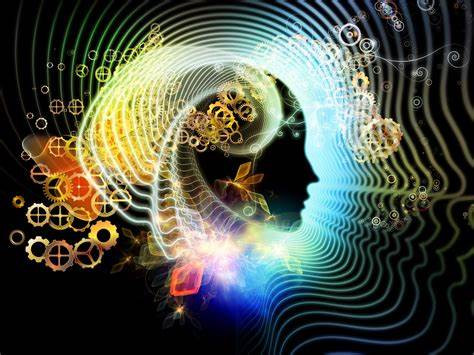Your Nonconscious Brain: Part 1

Jer 17:9 (NLT) - The human heart is the most deceitful of all things, and desperately wicked. Who really knows how bad it is?
The Heart - The Bible talks about the "heart" as the center of our hopes, dreams, beliefs, desires, identity, and fears. Most people presume that they know what is in their heart. But God's Word repeatedly says that only He truly knows our heart. This is confirmed every time our heart unexpectedly overflows in words or actions that surprise us! Psychologists have proven over and over again that what we profess to believe vs. what we actually believe are usually two different things. The technical name for this unhealthy state is "cognitive dissonance." It's part of the human condition.
Nonconscious brain - Scientific knowledge of the size, speed, and powerful influence of the nonconscious brain is relatively new. We've only recently learned that our conscious brain is merely the "puppet government" of our life. Most of our important decisions are actually made by our nonconscious brain. Our conscious brain mistakenly thinks that it is in control only because is has no "read/write" privileges to the nonconscious brain. Stated differently, our nonconscious mind steers the ship while our conscious mind collects data from the outside world.
Intelligence vs. Pattern Matching - Whereas our conscious brain is designed to think logically, our nonconscious brain operates mainly by empirical pattern matching and associations. This is how contemporary computer AI (Artificial Intelligence) works. The popularized notion of "artificial intelligence" confuses fact with SciFi. But the truth is much more down to earth. AI mimics the action of "intelligence" by rapidly and efficiently searching large databases of information and associations. Specifically, an AI machine searches a database(s) to find the pattern(s) or association(s) that most closely match a given real-world situation. For example, AI is used to identify credit card fraud on the basis of when and where the charges were made, and how the purchased items compare to the normal spending habits of the rightful card owner. And AI can do this faster and more reliably than any human analyst. Computer chess is another familiar example of AI. At one time the "Holy Grail" of AI was to design a computer chess program capable of defeating a trained human opponent. During the 1970s this was widely believed to be impossible. But by 1997 the computer was able to defeat the best human chess players on the planet. Now you can do the same from your home PC with open source software. But despite these notable successes, AI is NOT intelligence. It is just a fast and efficient "rules-guided" computer search of a large database.
Why such a long diversion into AI? Because this is basically how your nonconscious brain works. And that's why it is futile to attempt to change the beliefs of your nonconscious brain using logic or reason. That's like trying to reason with a drunk! Just because your conscious brain responds to logic doesn't automagically mean that your nonconscious brain behaves the same way. It doesn't! Once you really "get" this, it will change the way you do life! This is so important that I want to state it a different way. Although your nonconscious mind calls most of the shots in your life, it doesn't rely on logic. Instead, it uses the empirical AI approach and relies on previous life experience. For each new situation, it searches for proven patterns of behavior that have worked for similar situations in the past. It's a fast, robust mode of operation similar to AI (Artificial Intelligence). AI is computationally intensive and requires a fast computer. But speed is not a problem for you nonconscious brain; it runs approximately 100x faster than your conscious brain. But Repeat! Repeat! Repeat! . . . It does not rely on intellect or logical reasoning.
Summary of Our Nonconscious Brain
- Larger and much faster (100x) than your conscious brain
- NEVER sleeps
- Makes most of our decisions
- Operates independently from your conscious brain
- Relies on pattern matching and associations, not logical reasoning
- Sometimes called the "Inner Child" because it is strong on emotions but weak on reason and logic
Iceberg Analogy - We see only the tip of an iceberg. Specifically, 90% of an iceberg is below the water-line and therefore invisible to the observer. Therefore, the iceberg is a commonly used analogy to loosely explain the relationship between our conscious vs. nonconscious brain. It is estimated that your conscious brain performs less than 0.1% of your brain's activity. That's why I call our conscious brain the "Puppet Government." A large part of the nonconscious brain is devoted to running the incredibly complex machinery of our body. Our conscious brain takes this for granted and nonchalantly assumes that these things happen "automatically." I'm really glad that I don't have to consciously control my body temperature and heart rate and countless other body functions! That job require millions of signals per second that are deftly handled by our powerful nonconscious brain. And despite all this activity, our nonconscious brain still has plenty of leftover brain cycles to meddle with the higher functions of our life. And our conscious brain (the visible tip of the iceberg) is almost totally unaware that it is being strongly influenced (or sometimes totally controlled) by the nonconscious brain.